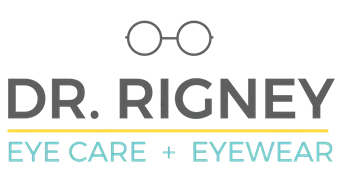Glaucoma and Diagnosis
Glaucoma is a group of eye diseases that damage the optic nerve, the vital connection between your eyes and your brain. Often caused by increased pressure within the eye, glaucoma can lead to irreversible vision loss if it is not deal with. Unfortunately, glaucoma is often asymptomatic in its early stages, making regular eye exams essential for early detection and timely intervention. For more information, contact us at Dr. Rigney Eye Care & Eyewear in Owasso, OK, today.
The Importance of Early Glaucoma Diagnosis
Early diagnosis of glaucoma is paramount for preserving your vision. Thankfully, when detected early, glaucoma can be managed with various treatment options, slowing or even halting its progression. However, if left untreated, glaucoma can slowly steal your peripheral vision, leading to tunnel vision and eventually blindness.
Comprehensive Eye Exams: Your First Line of Defense
An eye exam is the most effective way to diagnose glaucoma. During this exam, your eye doctor will perform various tests to assess your eye health and vision. These tests can help your optometrist identify any signs of glaucoma or other eye conditions.
Risk Factors for Glaucoma
While anyone can develop glaucoma, certain factors increase your risk. These include:
• Age: The risk of glaucoma increases with age.
• Family History: If you have a family history of glaucoma, you are at a higher risk.
• Other Medical Conditions: Diabetes, high blood pressure, and certain eye conditions can increase your risk.
If you have any of these risk factors, regular eye exams are even more crucial for monitoring your eye health and detecting glaucoma early.
Dr. Rigney Eye Care & Eyewear: Your Trusted Partner for Glaucoma Care
Our optometry office in Owasso, OK, is committed to providing eye care services, including glaucoma diagnosis and management. Our team utilizes advanced technology and techniques to help detect glaucoma early and recommend the most appropriate treatment options.
Get Eye Disease Management, Eye Care, Optometry Care, and Optometrist Services from an Eye Doctor Near You
Regular eye exams can be essential for early detection and treatment of glaucoma. If you are in Owasso, OK, or the nearby areas, contact us at Dr. Rigney Eye Care & Eyewear today to schedule an eye exam. Our team is here to help you protect your vision and maintain a healthy, fulfilling life. Call us at (918) 272-3937 for eye disease management, eye care, optometry care, and optometrist services from an eye doctor near you.



